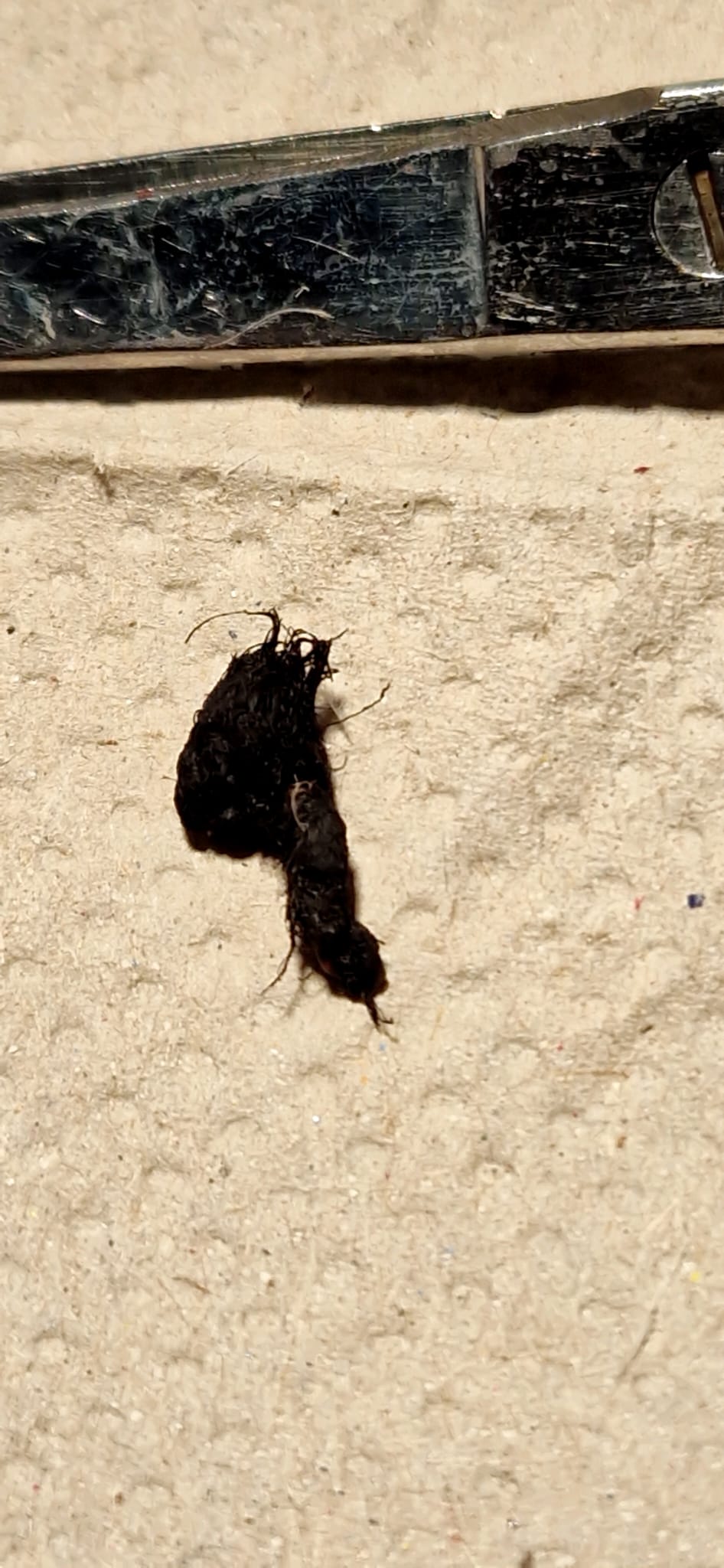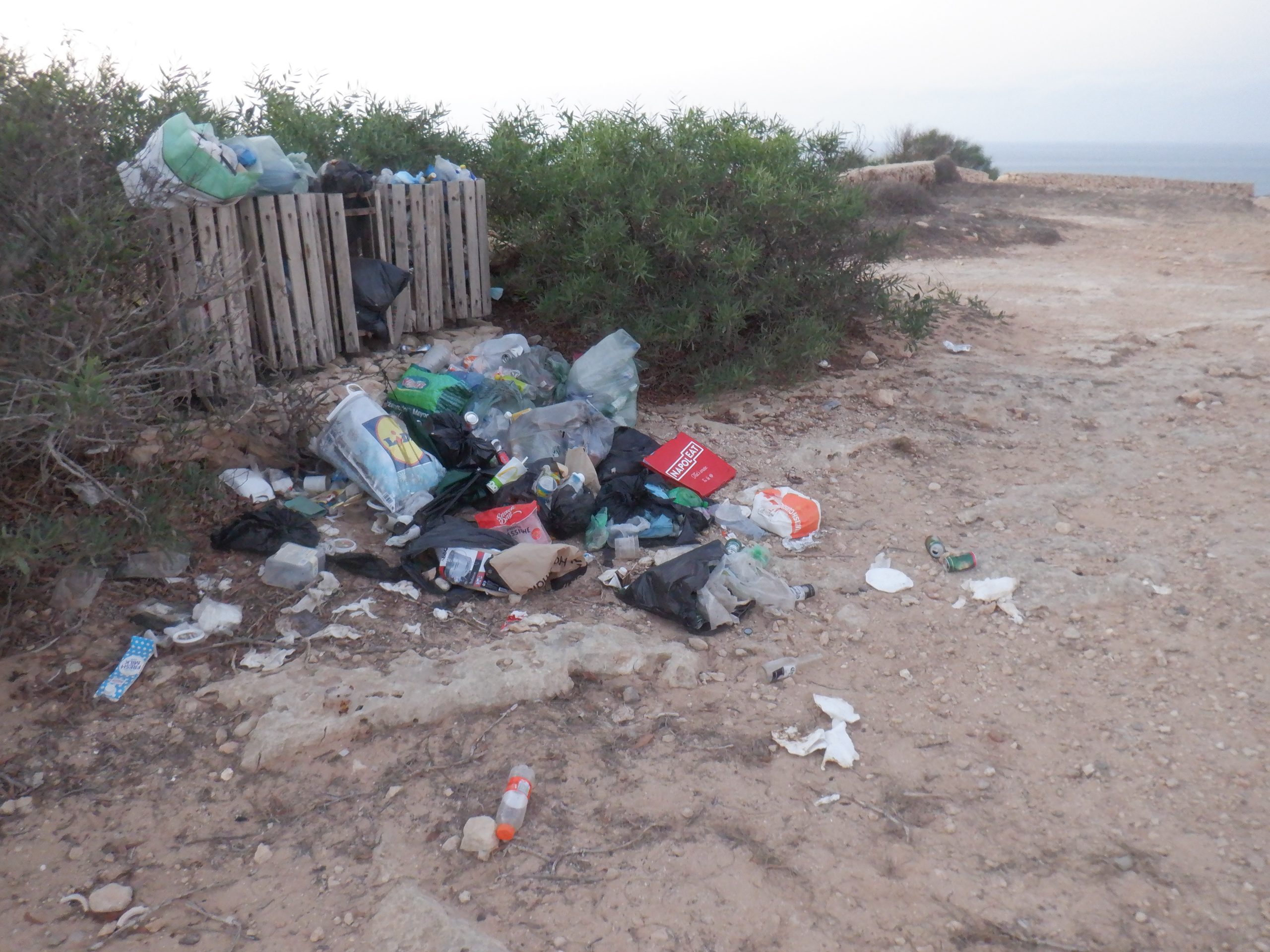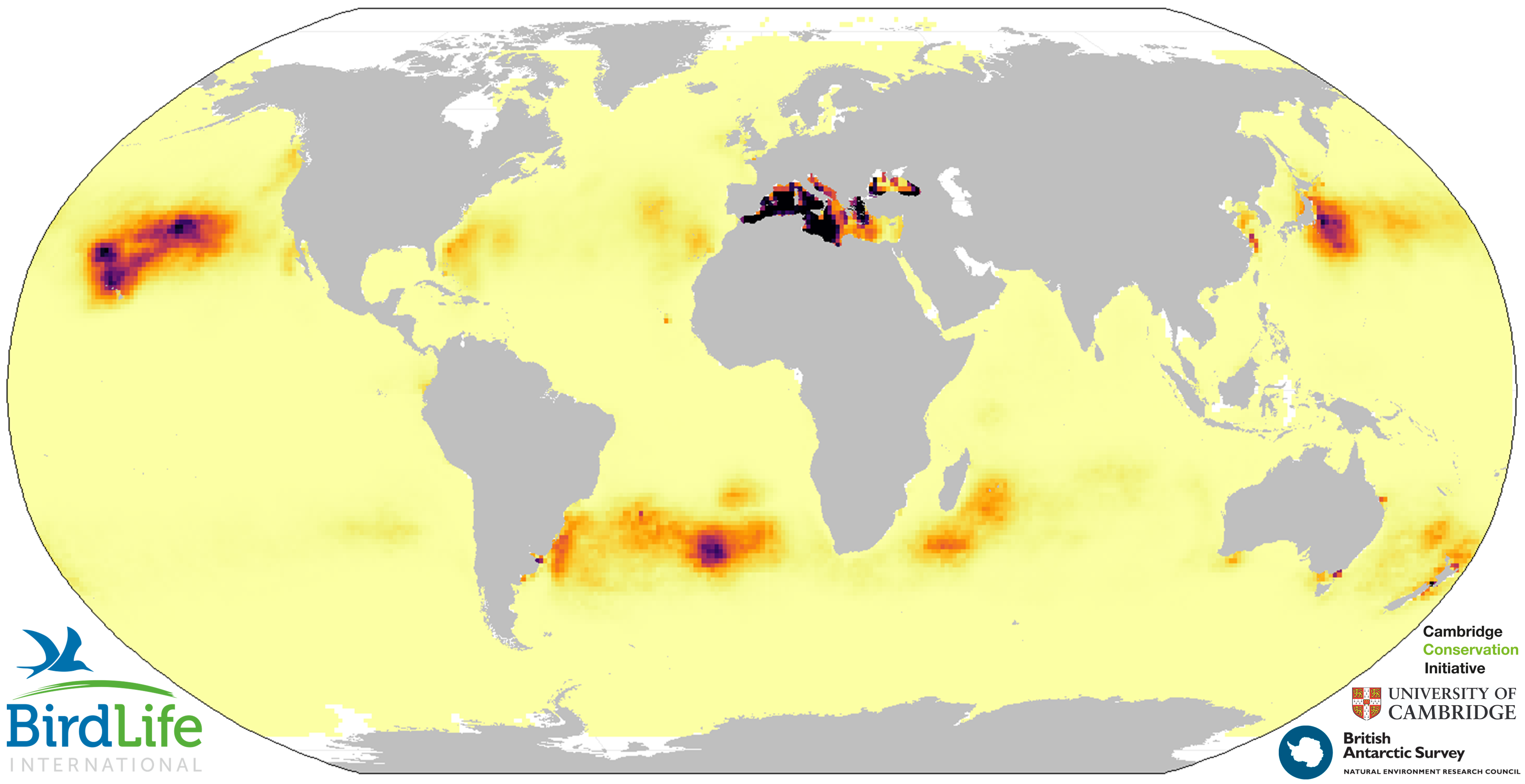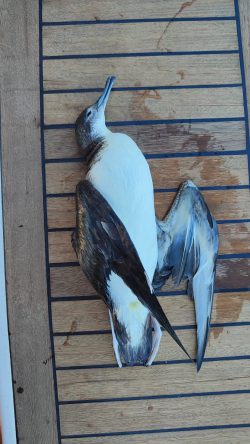The Mediterranean and Black Seas are among the highest exposure risk areas for seabirds to plastic pollution in the world, according to a study recently published in the scientific journal Nature Communications. The Maltese Islands are home to three species of seabirds that formed part of this study – the Scopoli’s Shearwater (Ċiefa), the Yelkouan Shearwater (Garnija) and the European Storm-petrel (Kanġu ta’ Filfla). Only last week, a Yelkouan Shearwater recovered dead at sea in Maltese waters was found to contain syntethic fabric in its stomach on examination by the government veterinary, which possibly contributed to its death.
Data collected through BirdLife Malta successive seabird studies contributes to global assessment
Seabirds are sensitive to plastic pollution as they accidentally swallow plastic which they mistake for food, or become entangled in plastic debris when foraging. Shearwaters and storm-petrels, which cover vast distances to feed and for annual migrations, retain swallowed plastic for longer periods in their gut, leading to starvation and to physical damage to their digestive organs. Given the rise in marine plastic pollution, its patchy distribution around the world, and the serious risks posed to seabirds, understanding where seabirds and plastic pollution overlap informs mitigation and conservation actions.
To investigate the overlap between petrels and ocean plastics, Bethany Clark and colleagues examined the overlap in space and time between abundances of plastic debris at sea from 77 petrel species from around the world. BirdLife Malta contributed to the study with large datasets from Maltese seabirds that had been tracked during the EU LIFE Yelkouan Shearwater Project, the LIFE+ Malta Seabird Project and LIFE Arċipelagu Garnija.
The authors compared exposure risks across populations, seasons, and jurisdictions, including the high seas areas outside of Exclusive Economic Zones (EEZs) that are beyond the national jurisdiction of coastal nations. They found that threatened species such as the Balearic Shearwater – which is one of the focus species of BirdLife Malta’s current LIFE PanPuffinus! project – have a greater exposure risk. Notably, Yelkouan Shearwaters breeding on Malta had amongst the highest plastic exposures experienced by any seabird worldwide since they spend all their life between the Mediterranean and Black Sea, constantly exposed to high plastic density throughout their annual cycle.
The findings highlight the need for improved international cooperation and collaboration to address the global threat of plastic pollution to marine organisms, as well as the urgency for strong political action to limit plastic production, use, and disposal. Locally we also need improved waste management to avoid more plastic ending up in the sea.
Read the Maltese version of the press release here.
Read the study published in the scientific journal Nature Communications here.




